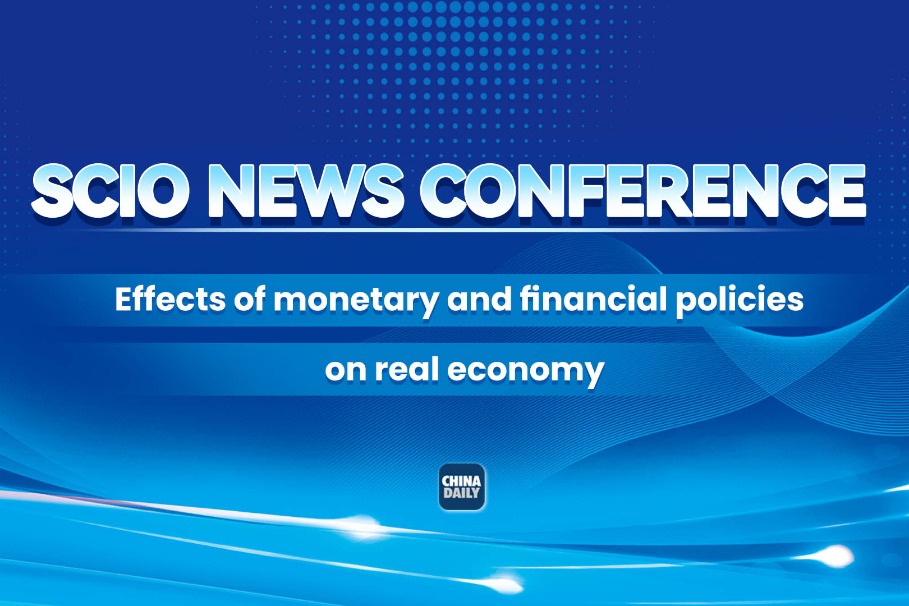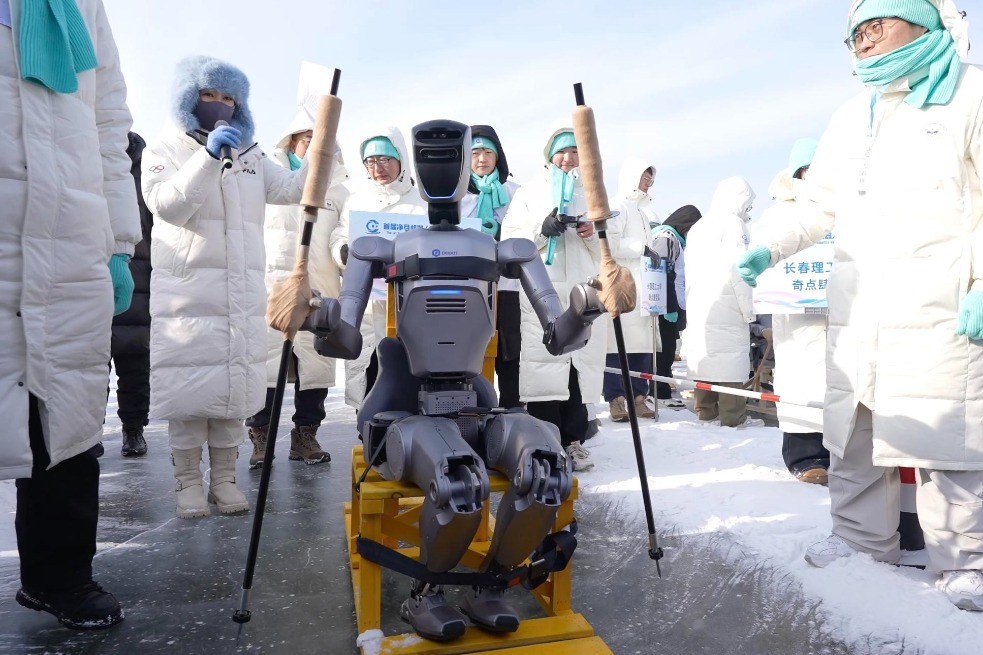ROK should work to improve ties with China


The Russia-Ukraine conflict, apart from creating more challenges for the world, seems to have signaled the end of the unipolar global order centered on the United States and the emergence of a new international order marked by intensifying strategic competition between the US and China, which prompts strengthening of security and economic cooperation between China and Russia.
The US subprime crisis that caused the 2008 global financial crisis, the Chinese economy overtaking the Japanese economy in 2010, the Crimea incident in 2014, the US launching a trade war against China, and Russia's warning to NATO in 2018 to stop expanding eastward, and the refusal of NATO to do so, leading to the Ukraine crisis are some of the important developments that point to the gradual decline of the US-led West.
NATO's continued eastward expansion and the US' efforts to build a trilateral alliance with Japan and the Republic of Korea reflect the geopolitical changes. Western countries insist on maintaining the West-centric liberal world order based on the international rules set by the US-led West. But many countries, especially the emerging market and developing countries, want to reform the West-led world order, not least because of the tendency of the US to use its self-set rules to interfere in the internal affairs of, and use the dollar as a weapon against, other countries.
World order should be equitable and fair
The reform of the world order is something that can no longer be avoided. In particular, countries in Asia, Central Asia, the Middle East, South Asia and Africa hope to de-dollarize the global economy and end the US' hegemony. They have realized the need to establish a new international economic and security community marked by cooperation and shared development.
In fact, President Xi Jinping has proposed the Global Development Initiative, the Global Security Initiative and the Global Civilization Initiative to unite the world in the pursuit of shared development, safeguard national security and build a global civilization for the good of the people across the world.
On May 18, the leaders of five Central Asian countries (Kazakhstan, Kyrgyzstan, Tajikistan, Turkmenistan and Uzbekistan) and China met in Xi'an, Shaanxi province, at the first China-Central Asia Summit to discuss ways to reform the international order in a way that it becomes equitable, more open and representative. And on May 25, at the second Eurasian Economic Forum of the Eurasian Economic Union, China and Russia declared that they are members of the larger Eurasian family and can never be separated. The two sides also said they respect each other's sovereignty, territorial integrity, and fully understand the need to better safeguard national security and conduct free trade and promote the Belt and Road Initiative.
This shows the efforts to build a community with a shared future in Eurasia based on free trade and people-to-people exchanges have intensified, and countries in the region are taking measures to nullify the West's baseless allegations of human rights abuses, especially those against China and Russia.
Irrespective of the US-led West's machinations, the third Belt and Road Forum for International Cooperation, to be held next month, will accelerate the shaping of a representative and open world order based on peace, development, cooperation and coexistence.
Time to reflect on US dollar hegemony
After the Russia-Ukraine conflict broke out, many countries recognized that the major contradictions and conflicts around the world were the result of the struggles between developing and developed worlds, and the outcome of the US' desperation to maintain its global hegemony. The developing countries have intensified their efforts to give shape to a more open, fair and representative world order also because they have realized the drawbacks of using the US dollar as the default international currency are immense.
Accordingly, BRICS countries, including China and Russia, hope to introduce a new "currency" to settle intra-BRICS trade rather than dollar payments; other BRICS countries, too, are promoting to use their own currencies to conduct trade. In terms of the use of the dollar, Brazilian President Luiz Inacio Lula da Silva, who visited China in April, had asked "why all countries have to base their trade on the dollar," and called to end the situation where the dollar dominates world trade.
The developing countries envisage building a more equitable, fair and open global financial system that is not dependent on the US dollar. And the Belt and Road Initiative and Global Development Initiative can help promote bilateral trade in local currencies.
Small circles pose big threats to region
Amid all this, the leaders of the ROK, the US and Japan gathered at Camp David, Maryland, on Aug 18 to build a so-called rules-based liberal international order and make efforts to "maintain peace and stability" in the Taiwan Strait.
The attempt of the troika to interfere in cross-Strait affairs is open provocation to Beijing. The Taiwan question is an internal matter of China, and any attempt to muddy the Strait's water is interference in China's internal affairs. The leaders of the US, the ROK and Japan also said they would monitor the Democratic People's Republic of Korea's activities, especially its nuclear and missile programs.
The US has been trying to build anti-China alliances or cliques. The Quad (comprising the US, Japan, India and Australia) and AUKUS(a security alliance among Australia, the United Kingdom and the US) are two such US cliques. Washington has also been making efforts to get NATO involved in the Ukraine crisis, by helping make Ukraine a European Union member and, by default, a NATO member state, in order to weaken Russia as well as to extend the transatlantic military alliance to the Asia-Pacific to contain China.
In the NATO summit in Madrid in 2022, which the ROK and Japan attended as the transatlantic military alliance's "Indo-Pacific" partners, the leaders of the US, Japan and the ROK emphasized the importance of military solidarity and cooperation among the three countries and the need to build a new world order centered on "G12", that is, the G7 economies (the US, Japan, Germany, the UK, France, Italy and Canada) plus Australia, New Zealand, the ROK and NATO and the EU.
As a matter of fact, the ROK had proposed an "Asia-Pacific Treaty Organization "way back in 1968 with the goal of establishing a so-called Asian version of NATO. The idea, it seems, has reemerged and gained strength in the wake of the Ukraine crisis.
In 1968, the ROK and Japan had argued that in order to counter the growing threats from the Soviet Union and China, it was necessary to establish an Asian multilateral security organization. The "APTO plan" was not realized due to the change in US-China relations. Now that the US-led NATO has once again identified China as a regional threat, it has become desperate to expand to the Asia-Pacific region.
The initial ROK-US-Japan policy was to establish a joint early warning system against the DPRK's nuclear and missile programs and conduct regular military exercises to deter the country from carrying out any nuclear or missile tests. But the formation of the Quad and AUKUS in recent years shows the US is more focused on containing China than taking preemptive or countermeasures against the DPRK.
Korean Peninsula may have to face difficult situation
Seoul-Beijing relations face serious challenges, with many international observers saying quite a few Asia-Pacific countries might join the US-led alliance to "safeguard their national security" even at the cost of sacrificing their economic interests, making the popular saying, "US-for-security, China-for-economy", meaningless. The fear is that the Korean Peninsula, with its unique geopolitical and economic characteristics, may find itself in a very complex and difficult situation.
The ROK and the US are allies and the former is an important partner in Washington's "Indo-Pacific strategy". The ROK believes that maintaining friendly relations with the US is necessary to maintain peace and stability on the Korean Peninsula. But given the geopolitical and economic complexities, the ROK in the past has tried to maintain a balance between its relations with the US and China. Currently, however, more inclined to the US.
On the other hand, the Ukraine crisis and the intensifying Sino-US competition have increased uncertainties for the Korean Peninsula and consolidated the strategic economic and security cooperation between China and Russia. But China has also been trying to improve relations with the US, Japan and the ROK while strongly opposing the NATO's eastward expansion and the polarity in the Northeast Asia and helping build an inclusive multilateral world order.
Both the ROK and China know the formation of a multipolar world order is inevitable. They are also striving to build friendly bilateral relations that would facilitate the promotion of peace and prosperity in the region. To bring this idea to fruition, however, they need new policy alternatives and must maintain honest and active communication.
The author is director of Center for Chinese Studies of the Sejong Institute.
The views don't necessarily reflect those of China Daily.
If you have a specific expertise, or would like to share your thought about our stories, then send us your writings at opinion@chinadaily.com.cn, and comment@chinadaily.com.cn.


































